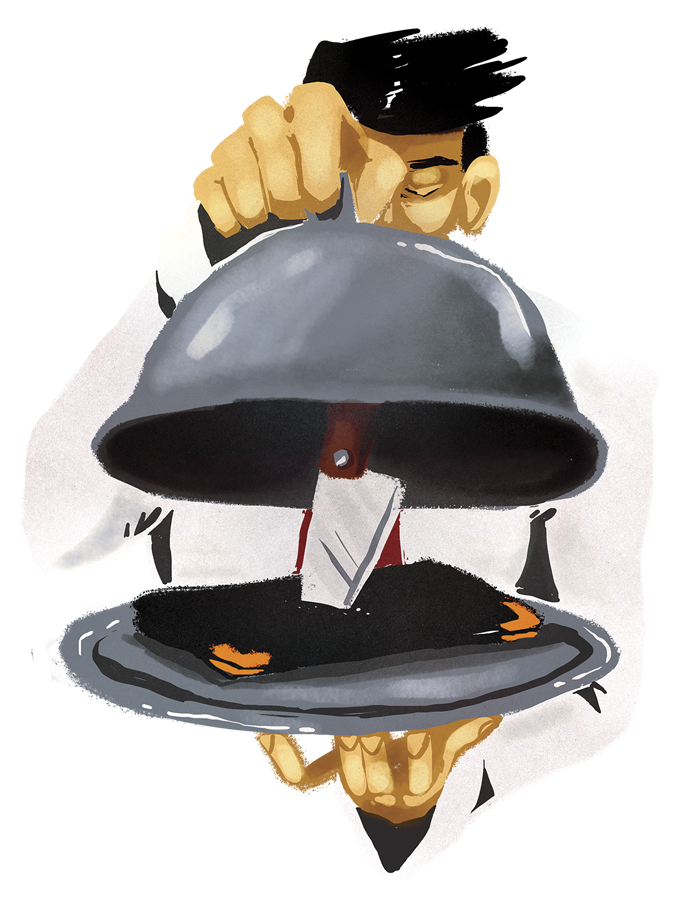Tips get ‘Sauced’ at East Bay restaurant
Typically, restaurant tips go straight into the pockets of servers, bartenders, food runners and hostesses. Back of the house workers — cooks and dishwashers — don’t typically see a dime of this compensation, which is determined entirely by how customers feel about the service received.
At the end of last year, owners of the Livermore restaurant, Sauced, decided they didn’t feel like the typical restaurant compensation model was sustainable for their business. They wanted to level the playing field for their employees and make a more fair compensation system.
Their idea was to install a mandatory 20 percent service charge that would be automatically added to guests’ bills. Instead of tipping out only front of the house staff at the end of the night, the service charge would be distributed to all staff in their paychecks. A pay-grade was established, based on years of experience and position held. The service charge enabled them to increase employee hourly rates and offer them full medical benefits as well as a 401K plan.
Late in 2015, their plan went into effect. Immediately, guests were livid, voicing their frustrations directly to Sauced and through Yelp reviews. These guests felt that forcing them to tip 20 percent is ludicrous and that the quality of service suffered as a result of the included charge.
Ultimately, Sauced made the decision to remove the service charge from their bills and revert to their original method of tipping because of feedback from their disgruntled customers and staff.
“If I’m forced to pay what I deem to be the higher end of the tip scale with no choice of my own, what motivation do they [servers] have,” Sauced guest Jason E. said. “Nobody is going to go the extra mile without compensation. Period.”
Sauced was not expecting a drop off in customer service and in a prior statement claimed that they expected their service to improve because they are creating careers and not just jobs.
“Numerous studies have concluded that there is little to no correlation between quality of service and amount of tip. Studies have also found that women are tipped better than men, [and] that white servers are tipped better than black servers,” the statement read. Getting rid of this option would increase the morale of all employees, Sauced believed.
“There were many factors that went into this decision,” Sauced Director of Brand Development Kristina Wulff said. “Primarily, we listened to the constructive comments of both our staff and our guests. There was quite the public outrage. So much so that one of our female managers was verbally assaulted by a man while waiting in line at the grocery store. We were continuously receiving threatening phone calls to the point of having to call the police.”
Sauced felt like they needed to take action to protect their employees. “Our main responsibility is to make sure our employees feel safe,” Wolff said. “ It didn’t make sense from our standpoint to subject them to this type of negativity and hostility.”
Sauced wasn’t the first restaurant to add on this service charge to every guest’s bill though they were the first in the East Bay.
Many restaurants in the Bay Area such as Toast in Oakland, Comal in Berkeley and Trau Normand in San Francisco have all adapted this business model. In a press release by Comal, they stated that they expect more restaurants to adopt this philosophy.
“Although we may be one of the early adopters, we will not be the last restaurant trying to come up with a different business model to absorb additional costs associated with creating livable wages and benefits for our staff,” said Sauced owner Barrett Gomes.
Wolff says they don’t regret the decision to add the charge.
“Our intentions came from the heart. We never meant for anyone to feel like we had taken away their rights or forced them into a predetermined tip.”







